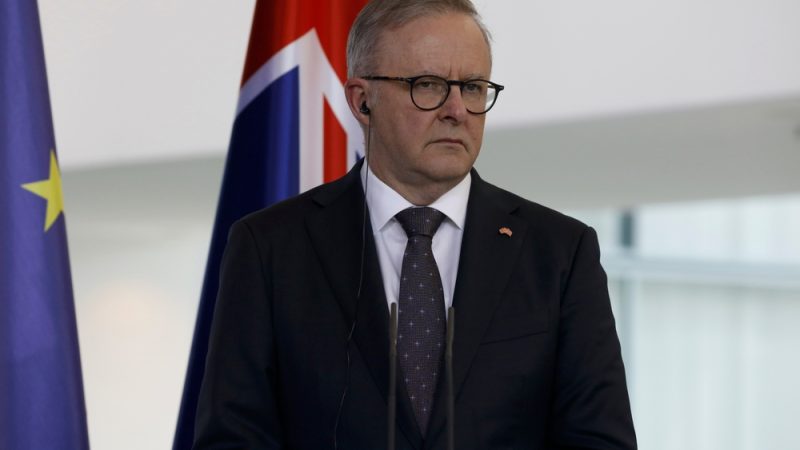
Despite having assumed power without any great popular enthusiasm at the May 2022 federal election, the Australian Labor Government under newly-minted Prime Minister Anthony Albanese quickly established dominance in the opinion polls. Two years later, however, and with an election due in 2025, that poll lead has all but evaporated.
Although Labor’s 2022 victory was hardly emphatic — its share of the primary vote, just 32.6%, was the lowest for a winning party since the 1930s — the new Government’s popularity quickly soared. It even captured a previously Opposition-held seat at an April 2023 by-election, a feat that no other Australian government had managed since 1920.
Despite having inspired little enthusiasm as Opposition Leader, Albanese’s own personal approval ratings climbed, and by September 2022 he established a 39 percentage point lead as preferred Prime Minister over the new Leader of the Opposition, Peter Dutton. Unfortunately for Albanese and his government, however, the honeymoon has well and truly come to an end. Two main factors are to blame.
Defeat in the Voice referendum dealt blow to government
First, the Government was badly damaged by the failure of the Voice referendum in October 2023. During the 2022 election, Albanese pledged to hold a referendum on whether to create a constitutionally-entrenched indigenous advisory body, which would have been known as the Voice. In Australia, the constitution can only be changed by a popular vote.
Albanese invested substantial political capital into the referendum campaign. Unfortunately for him and the ‘yes’ campaign, the conservative Opposition under Peter Dutton fiercely campaigned against it. Sensing an opportunity to land a blow against his Labor opponent, Dutton came out strongly against the Voice. Deprived of bipartisan support and plagued by voter confusion about how it would actually work, the Voice suffered a crushing defeat, with over 60% of the electorate voting ‘no’.
In addition to the political embarrassment, the Voice debacle created the perception that the Government was ignoring the bread-and-butter issues of concern to most voters.
Ongoing cost of living crisis has dented Labor support
This ties into the Government’s second problem — the failure to resolve the ongoing cost-of-living crisis has further dented popular enthusiasm for the Albanese Government. Much like the UK, Australian voters have been battered by a combination of higher inflation, rapid interest rate rises and soaring housing costs. Despite inflation having since fallen from 7.8% to 4.1% and interest rates having now stabilised, the damage to the Government’s standing has been done.
The combined effect of both these problems is reflected in the opinion polls. According to Newspoll, generally acknowledged as Australia’s leading pollster, the ALP’s two-party preferred vote lead — the most relevant polling indicator under Australia’s preferential voting system — slumped from 57-43% in September 2022 to 52-48% in November 2023. Another poll released in late February 2024 even had the Coalition ahead of Labor, albeit by a narrow margin of 51-49%.
‘Voter goodwill is finite’
Although its parliamentary majority is at serious risk, it is still unlikely that Anthony Albanese’s Labor Party will lose power at the next election. Australia’s last one-term Government fell in 1931, and Albanese’s is hardly the first Australian Government to suffer mid-term blues.
More problematically for Dutton, it remains difficult to see how the Coalition will come close to picking up the 21 seats necessary to secure a majority in the 151-member House of Representatives. Labor’s victory at last Saturday’s Dunkley by-election in outer Melbourne, albeit with a reduced majority, suggests that the Coalition has not made sufficient inroads into the suburban seats it needs to win back.
Making matters worse, the so-called ‘Teal’ independents, who occupy eight formerly safe Coalition seats, appear to be entrenching themselves, potentially shielding the Labor Government should its majority fall.
There are several key lessons that Sir Keir Starmer’s UK Labour Party can draw from the Albanese Labor Government. Although voters may rapidly warm to a newly elected Prime Minister, especially after the turmoil of recent years, voter goodwill is finite.
The public may take issue if a Starmer Government is seen as spending too much time on cultural and constitutional issues. Above all, unless the new administration is seen to prioritise and address the ongoing cost-of-living crisis, its honeymoon could well prove short-lived.




More from LabourList
Antonia Romeo appointed to lead civil service as new Cabinet Secretary
‘If Labour is serious about upskilling Britain, it must mobilise local businesses’
Stella Tsantekidou column: ‘What are we to make of the Labour Together scandal?’